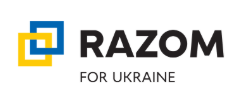
- This event has passed.
Our Life Behind Barbed Wire: Photography, Poetry, and Song from Ukraine’s Shadows
November 1, 2025 @ 6:00 pm - 8:30 pm
Event Navigation
In partnership with
The Shevchenko Scientific Society gallery will host an evening of scholarship and performance centered on the experiences of Ukrainian forced laborers (Ostarbeiters) in Nazi Germany.
Schedule
6:00 pm Lecture by Alex Averbuch and opening of the Ostarbeiter photography exhibit «Our Life Behind Barbed Wire”
7:00 pm Musico-poetic performance with poet Alex Averbuch, translators Oksana Maksymchuk & Max Rosochinsky, and composer-vocalist Olga Zaitseva-Herz (part of the Ukrainian Cultural Festival by Razom for Ukraine)
The public lecture by Alex Averbuch will open an exhibition dedicated to the photography and correspondence of Ukrainian Ostarbeiters who were displaced to Nazi Germany during World War II. The show brings together rare images and personal letters that record daily life, coercion, and resilience. The materials trace intimate struggles, including young women’s pregnancies in captivity, secret marriages, and clandestine efforts to send forbidden news home, as well as acts of resistance and survival under totalitarian rule.
The exhibition will remain on view through January 1, 2026.
Following the talk at 7:00 pm, guests are invited to view the exhibition and attend an immersive musico-poetic program by Averbuch and Zaitseva-Herz. Blending poetry, voice, and sound, it brings forward often-silenced histories, from deported Ostarbeiters and victims of the Holocaust to those suffering under Russia’s ongoing invasion of Ukraine. Staged within the exhibit space itself, the performance resonates with Ukraine’s historical “shadows,” enveloping the audience in poetry, song, and storytelling that bridge past traumas with the present struggle for survival and dignity.
Alex Averbuch, a native of Novoaidar, Luhansk region, Ukraine, is a poet, translator, and scholar. He is the author of several books of poetry and an array of over seventy selections of literary translations between Hebrew, Ukrainian, Russian, and English. His poems have appeared in English translation in Beloit, Manhattan Review, Copper Nickel, Birmingham Poetry Review, Plume, Words Without Borders, Sugar House Review, Constellations, and Common Knowledge, as well as in anthologies in English, Italian, French, Romanian, Hebrew, Finnish, Estonian, and Polish translation. His works have been twice nominated for the Pushcart Prize. Averbuch’s latest poetry book was a finalist for the Shevchenko National Prize, Ukraine’s highest award for culture and literature, and is forthcoming in English translation by Oksana Maksymchuk and Max Rosochinsky under the title Furious Harvests from HURI/Harvard UP. Standalone collections of his poetry have been or will soon be published in Polish, Italian, and German. He is currently an assistant professor of Ukrainian literature and culture in the Department of Slavic Languages and Literatures at the University of Michigan.
Olga Zaitseva-Herz is an ethnomusicologist and postdoctoral fellow at the Kule Folklore Centre, University of Alberta. Originally from Dnipro, she completed her PhD in 2024 with a dissertation on Ukrainian songs in Canada, exploring their interconnectedness and the transculturality of singing styles. Her current research interest is in the strategic role of popular music in Russia’s war on Ukraine, with particular attention to cultural resilience in digital spaces and AI-mediated communication. Alongside her academic work, she is an active performer and composer with extensive international concert experience. In 2011, she founded the band Zaitsa in Germany, reimagining traditional Ukrainian songs through jazz, pop, and klezmer elements. With this ensemble, she has performed hundreds of concerts across Europe, including a premiere at the Mela Festival in England, associated with the opening of the London Olympic Games in 2012. She has also performed as a solo singer with different orchestras and also played in orchestras on international tours with Andrea Bocelli and David Garrett. An installment of her contemporary opera Bakhmut Rhapsody, based on frontline soundscapes and ethnographic fieldwork combined with poetry by T. Shevchenko and L. Ukrainka, premiered at the Ukrainian Contemporary Music Festival in New York City in 2024. Her current artistic research project focuses on the sonification of Ukrainian embroidery, where traditional patterns are transcribed into musical compositions. In this innovative work, embroidered stitches become notes, and colors shape pitch and timbre, creating polyphonic soundscapes that translate the intangible cultural heritage of Ukrainian embroidery into sonic form.
Oksana Maksymchuk is a bilingual Ukrainian-American poet, scholar, and literary translator. Her debut English-language poetry collection Still City: Diary of an Invasion (University of Pittsburgh Press (US)/Carcanet (UK)) was long-listed for the 2025 Griffin Poetry Prize and Pen/Voelcker Award for Poetry. She co-edited an anthology Words for War: New Poems from Ukraine (Academic Studies Press, 2017) and co-translated several poetry collections, most recently, Alex Averbuch’s Furious Harvests (Harvard University Press, 2025). Oksana holds a PhD in philosophy from Northwestern University.
Max Rosochinsky is a scholar, translator and poet from Simferopol/Crimea. His translations have featured in publications including Modern Poetry in Translation, Words Without Borders, Poetry International and the Best European Fiction series from Dalkey Archive Press, while his translation of Lyuba Yakimchuk’s Prayer was performed by the author at the 2022 Grammy Awards Ceremony. A co-winner of first place in the Joseph Brodsky-Stephen Spender Prize translation competition, he co-edited Words for War: New Poems from Ukraine, an anthology of contemporary Ukrainian poetry with Oksana Maksymchuk, and co-translated Apricots of Donbas, a collection of selected poems by Lyuba Yakimchuk, and The Voices of Babyn Yar, a book of poetry by Marianna Kiyanovska.

